

SCHOLARSHIP AND HAP PROGRAMME
My most successful (and ongoing) project this year is learning Arabic which helps my language skills and increases awareness and understanding of people and cultures.
EDWARD, THIRD FORM

Who are the Sherborne Scholars/Exhibitioners and HAPS?
Scholars/Exhibitioners are those boys with Academic Awards or Co-Curricular Awards for excellence in Sport, Music, Art, Drama or Design Technology. These Awards are confirmed before entry to the School in Third Form and are selected following a rigorous assessment process (for more information, please contact admissions@sherborneboys.group).
From time to time, and particularly in transition to Sixth Form, boys maybe awarded Honorary Scholarships for their outstanding academic performance and commitment to independent scholarship.
HAPs are boys with Higher Academic Potential who are identified after joining the School as likely to be strong academic performers, either as all-rounders (meaning any single or several curriculum subjects), or in Sport, Music, Art, Drama or Design Technology. Boys are identified via teacher recommendation, through standardised testing (for example, Midyis), or by their strong academic performance in internal assessments. Once highlighted, HAPs are invited to join in the relevant scholarship programme and are largely given the same provision and opportunities
Lower School Academic Scholars and HAPS programme
TAG Time
The Third Form Talented and Gifted (TAG) time is ring fenced on a Wednesday afternoon. This is an important midweek ‘pause’ on normal lessons and curriculum focus and a chance for boys to lift their thinking via academic ‘table talk’, challenging and sometimes esoteric questions, critical thinking and collaborative investigation. The boys quickly become a tightly knit group who enjoy their time together in an environment of intellectual curiosity, academic interest and mutual support.
At the core of TAG time is independent learning. A significant proportion of the boys choose to begin a GCSE level HPQ (Higher Project Qualification) on a topic of their choosing. These currently include music composition, a comparison of the Homer and Milton and an investigation into age-related diseases. Other boys follow their own passions and interests, from learning Arabic to the science of surfing and courses in coding, economics and military history. To support their studies, boys often complete MOOCs (Massive Open Online Course) via FutureLearn, or OpenLearn courses from the Open University.
One of the most enjoyable parts of their TAG time is sharing their learning and we do this via half termly Peer Review Conferences, where boys present their research, methodologies and findings thus far and their peers provide feedback and critical analysis to help form the future direction of their work. Another way boys present their research is by producing TED talk videos, outlining their arguments or theories or demonstrating their knowledge in a ‘did you know’ format.
Once a fortnight, half of TAG Time is jointly with Sherborne Girls and the format shifts to being generally group based, and includes team investigations, problem solving and/or debates. These can be on big real-world subjects such as the environment, or mental exercises in the form of GCHQ puzzles, or focus on skills like presenting or taking roles within a team.
I have found the TAG programme the most useful this year because I think that the individual research that is done massively boosts our general knowledge, and I really enjoy the freedom, being that you can work on any course that you choose, on a multitude of topics.
FELIX, THIRD FORM
Turing Jrs & MUN

This term I have applied myself to MUN on Mondays in the Turing Juniors slot and represented France in the HAP/MUN programme, attempting to resolve use of AI in warfare, and environmental problems. I also offered a TED talk on Movies which is one of my passions, researching possible ideas such as Equilibrium, ATOMS, or the power and impact of a good movie
HUGH, FOURTH FORM
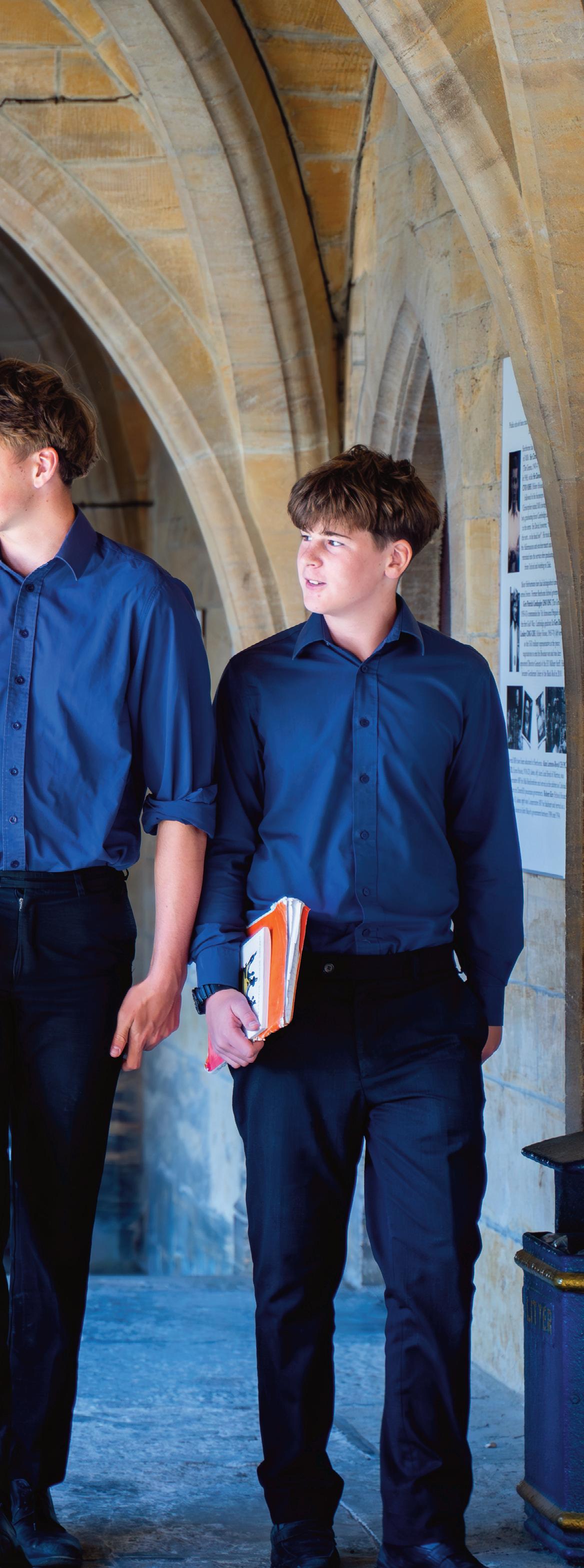
The younger version of our longstanding Turing Society, this takes place on a Monday evening for the Fourth and Fifth Form. It is, essentially, a similar space to TAG time, but with a more focussed output. Whilst some boys start or continue with their HPQ projects or other courses, there is also a concerted effort to submit entries for local, regional, national and international competitions, symposiums and Olympiads. The idea is that the boys begin to develop a portfolio of academic achievements and to look beyond Sherborne to measure and compete with bright pupils from other schools.
Turing Jrs also includes some faculty-led seminars or workshops to introduce them to A level subjects and ideas. Examples of these are Business, Politics, Philosophy and Linguistics, and it is planned to include collaboration with ‘Thinkers in Education’ and ‘Growing Up Greatness’ to provide workshop daytrips to focus on STEM, Law, International Relations or Languages.
Some boys prefer a more structured programme so, to ensure that the remit of extended independent learning is met, they join the MUN (Model United Nations) Programme that runs as part of Turing Jrs. This programme covers a range of real-world problems and debates, requiring boys to take on the position and perspective of a particular country and to act in sessions and negotiations in a way that is consistent with that country. To do so requires in-depth research, flexible thinking and considerable creativity. This programme develops not only a strong awareness of the world around them, but important academic skills. Boys take part in regional and national MUN Conferences, ably led by members of the Sixth Form MUN Team.
Rostrum
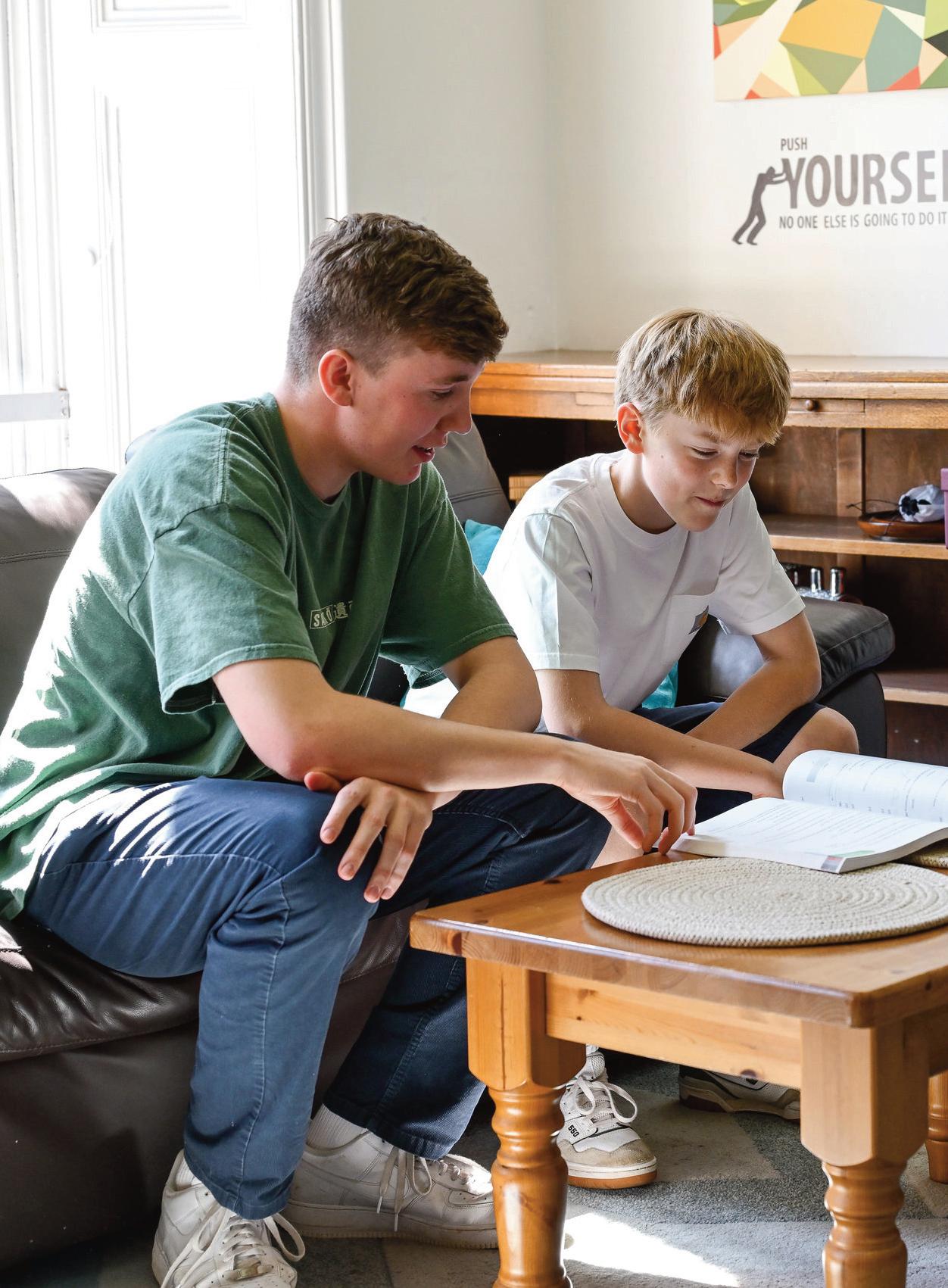
Rostrum is a Friday evening programme for all Lower School Scholars and HAPs and, on occasion, invited Sixth Form. It consists of a rotation of different activities, designed to stretch and challenge boys in different ways.
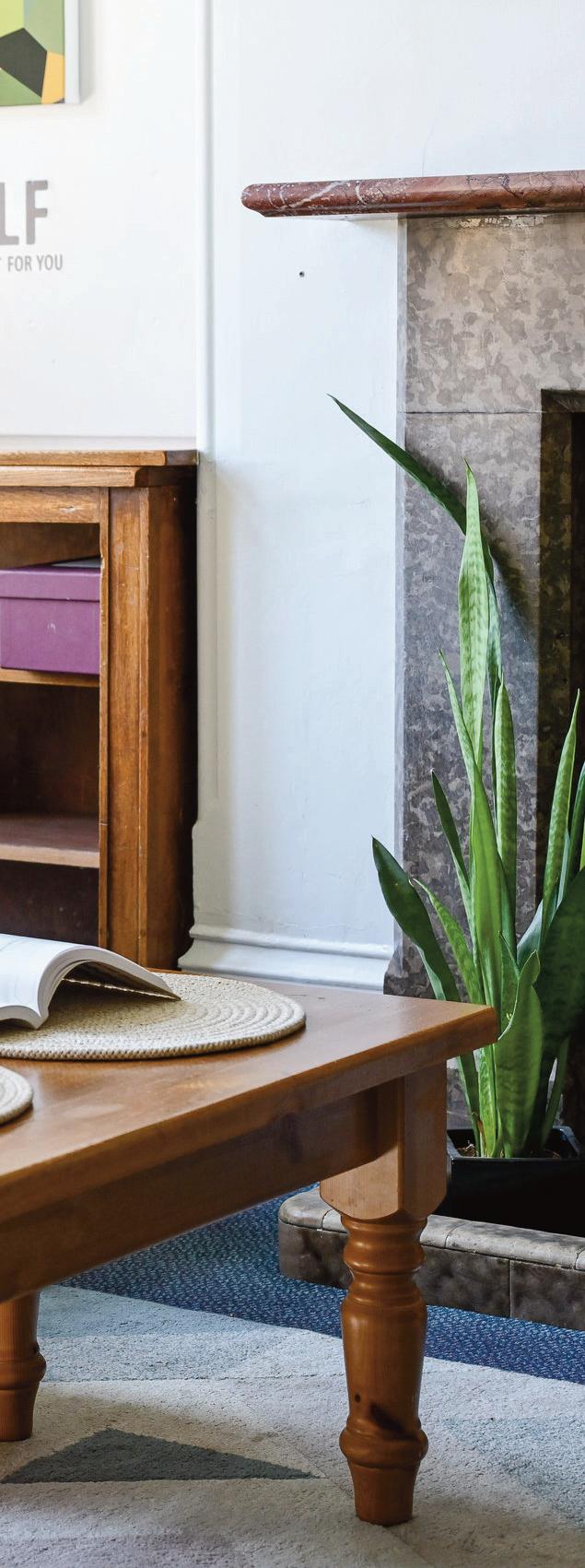
Speed Debating
Which is better – a pen or a pencil? A gig or a game? And if a gig, pop or classical? On several Friday evenings each term, the finest minds of our Third and Fourth Forms have addressed these and other salient issues, not to put them to rest forever but to sharpen their abilities to shape an argument, to see its potential, and to express it persuasively. But perhaps the most important skill boys have developed is listening to one another. Admittedly this was mostly so that they could trip one another up in these micro-debates. The hope is that these sessions will have a lasting impact: if we can learn to disagree about the fun things, and to take our trivia seriously, then surely there’s a stronger chance that we can address more contentious and divisive issues with care and respect? Yes, of course.
My favourite Rostrum activities are unpacking the TED talks and debating, as they offer new ideas and insights whilst still being fun.
EDWARD, THIRD FORM
PK Club
Pecha Kucha is an enrichment club designed with our brightest pupils in mind. The term ‘Pecha Kucha’ comes from the Japanese meaning ‘chit chat’ – it is a presentation format where the speaker delivers a talk using a set number of slides, each shown for exactly 20 seconds.

This method encourages the speaker to communicate with maximum efficiency, and to consider the ways in which strategic image selection or data visualisation can support the use of spoken language. This encourages clarity, concision, and creativity. No wonder, then, that this is the presentation method increasingly employed internally at TED, Apple, Microsoft, Google, Meta, Open AI, Amazon and within governments.
At Rostrum, I most enjoyed PK Club and Staff Lectures because I found those conveyed information really well and in an interesting style. I liked the variety and ranges of topics that were covered in these sessions. The debates despite being difficult definitely improved my ability to convey a point in a persuasive style and helped with public speaking.
THEO, THIRD FORM
The club takes place twice each half term. Each club explores a different theme. The theme might touch upon speculative theory, sociohistorical issues, philosophical questions, literary topics, science, art, and geopolitical current affairs. Pupils choose or are assigned a topic within the theme and are guided in researching, planning, and crafting their own Pecha Kucha presentations. These are then performed live in front of their peers. Recent examples include sessions on ‘The Overton Window’, ‘The Archimedes Palimpsest’ and ‘CityScape 2125: How To Create The Just City’.
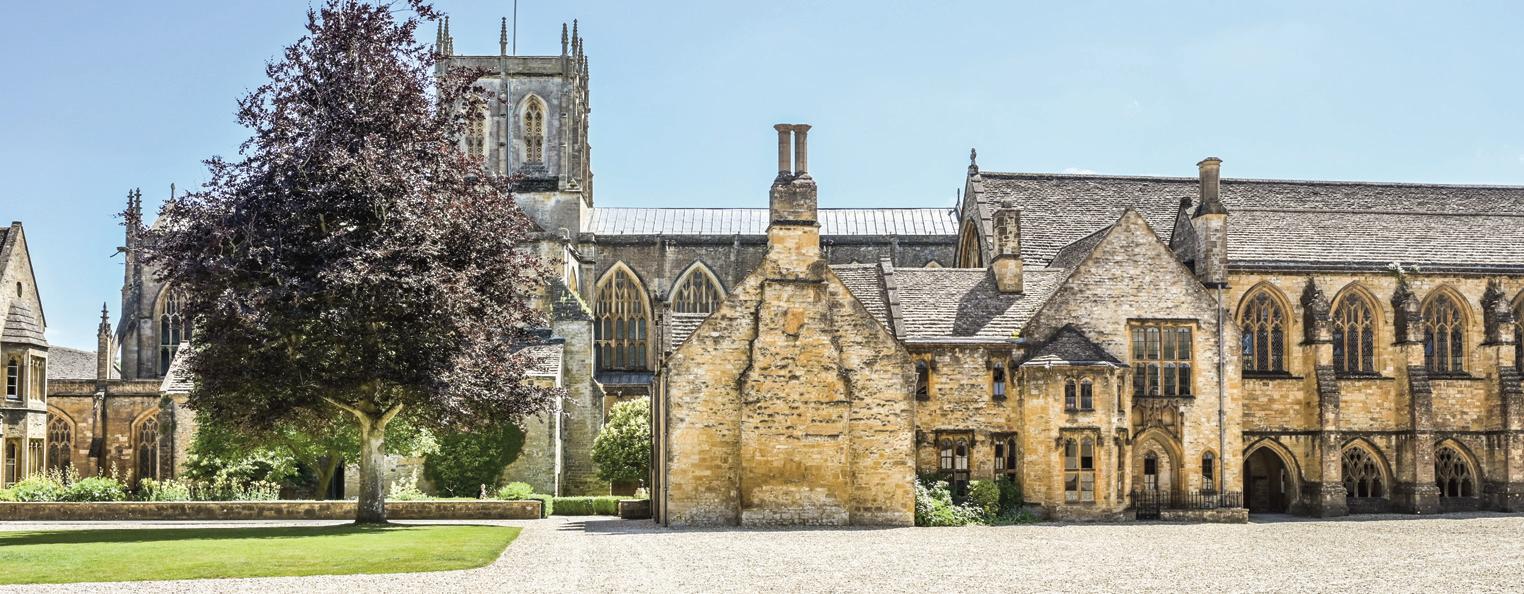

What makes Pecha Kucha Club different from regular classroom learning is its emphasis on self-direction. This challenges even the brightest pupils to refine their verbal and visual literacy, to consider audience engagement, and to think carefully about structure, timing, and tone. Pupils must distil complex ideas into clearly articulated points, supported by striking visuals and thoughtful commentary. It requires a purposeful understanding of subject matter to persuade, to inform, to entertain, or to provoke further debate.
Moreover, Pecha Kucha develops confidence and presence in public speaking. Even students who are naturally articulate or academically able might find the format daunting at first. However, with coaching and practice, they learn to overcome nerves, to speak with authority, and to deliver ideas with flair. Excellence is celebrated, ambition is expected, and humour is often appreciated! Pecha Kucha Club provides a stimulating and supportive environment where our High Academic Potential (HAP) pupils can extend themselves beyond the traditional curriculum.


Academic Staff Lectures: ‘To Infinity And Beyond’, ‘The Theology of National Socialism’, ‘Discovering Music: Understanding the Beat of the Universe’ and ‘The Courts Martials of WWI’ – just some of the Academic Staff Lectures presented at Friday Rostrum. These lectures are designed to extend boy’s conceptual thinking and subject experience, well beyond the confines of the GCSE or even A level curriculum, and are also attended by Sixth Form boys studying the related subject. They are delivered by Academic Staff on a subject of their choosing with the only proviso being that it is not linked to their examined curriculum.
I have particularly enjoyed the Lectures. In my opinion they are certainly the most valuable part of the Programme offering insights into A level subjects and generally more complex ideas and theories. In particular the TED talk on Astrophysics and string theory was fascinating since it felt like I was in university - going beyond GCSE content.
HUGH, FOURTH FORM
Listening and learning from a lecture is an underdeveloped skills in many schools today but is essential for University learning and to encourage a longer attention span, recall and listening focus. Lectures are followed by a Q&A session, in which boys have enthusiastically participated. Typically, they enjoy engaging in the ideas and questioning the ‘whys and wherefores’, demonstrating their critical thinking skills and showing considerable insight. Boys often leave lectures inspired to conduct further reading or research into the topics covered, which in turn supports the objective of building their independent study skills.
The Lecture programme is always exciting, and it includes both internal and external speakers in the rotation.
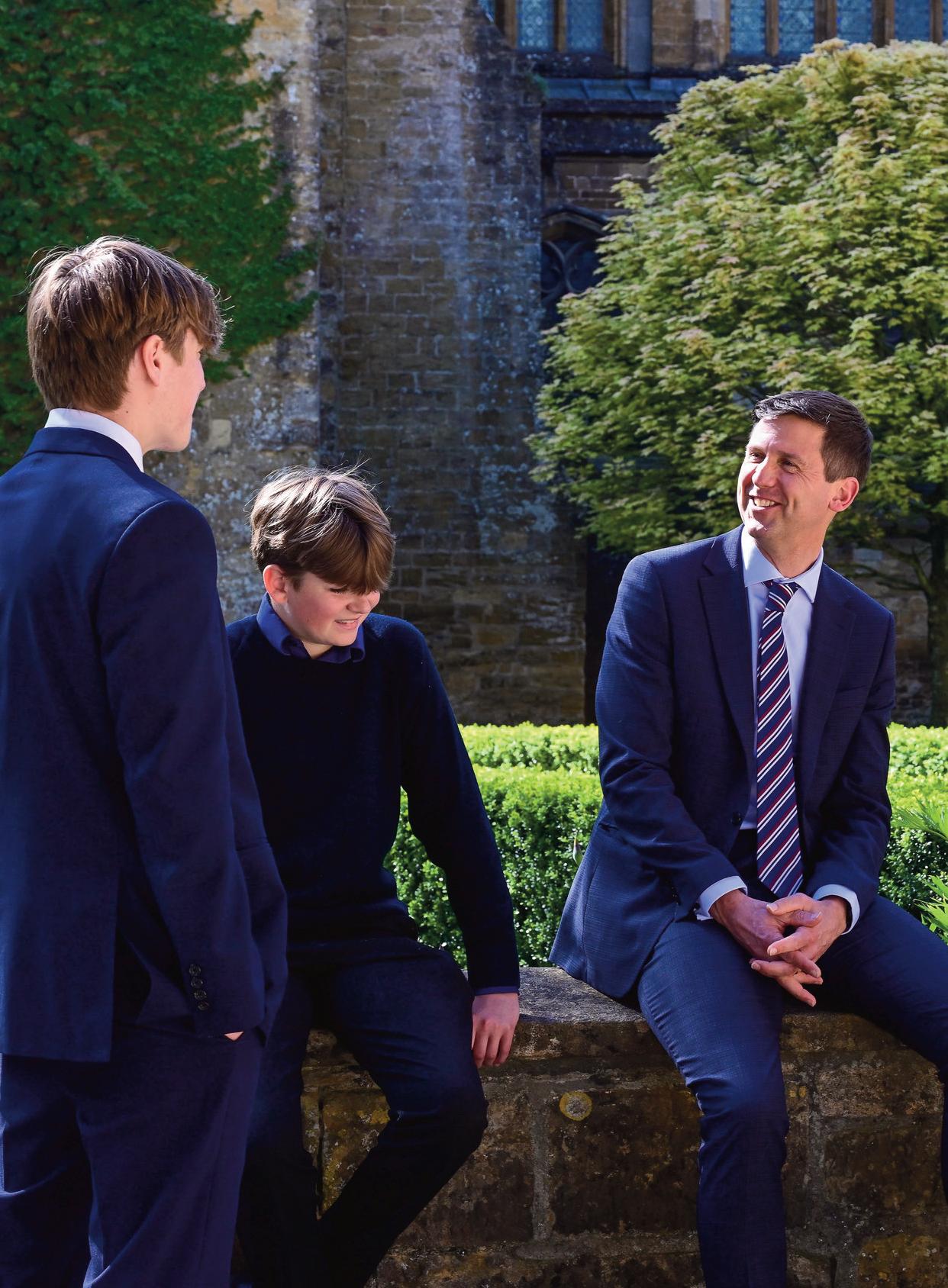
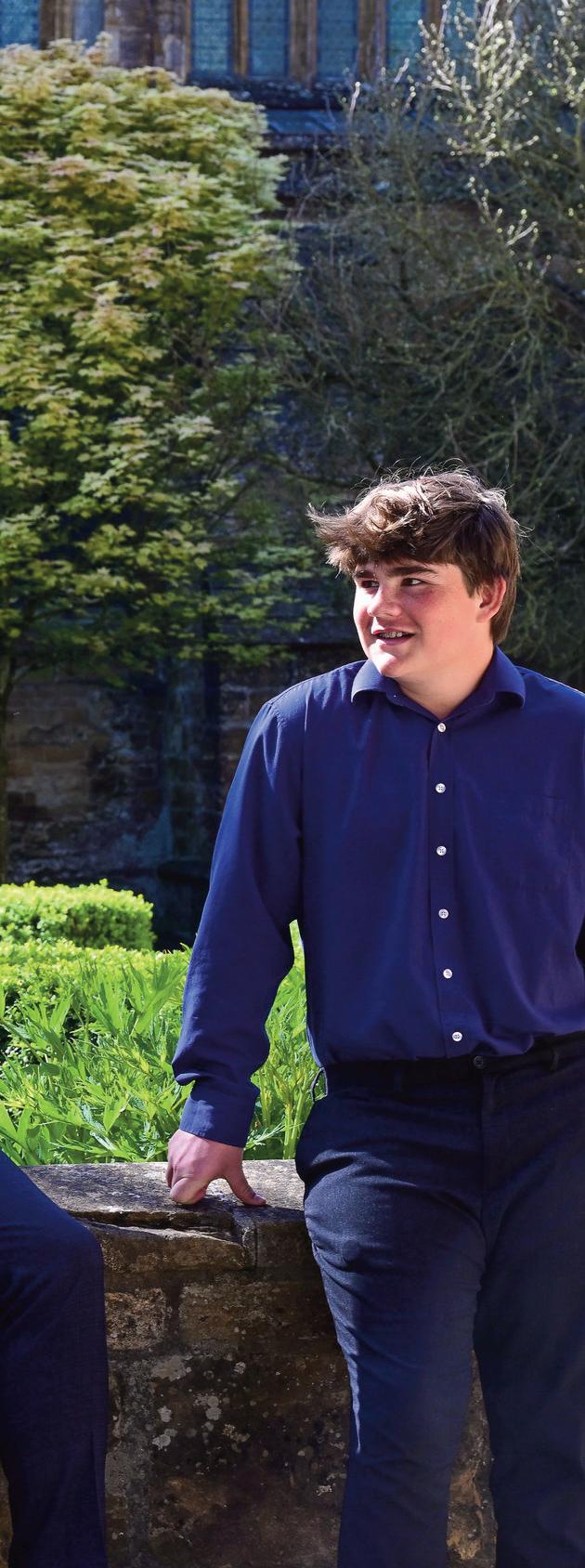
Videre
Videre is a stimulus discussion seminar based on pedagogical or behavioural thinking rather than on academic subjects. It furthers a metacognitive approach and an ability to think independently and critically and to develop their own ideas about the world around them by articulating them and sharpening them through peer questioning.
A Videre session starts with a TED Talk video, for example ‘Ambition is not a dirty word’ or ‘The Power of Introverts’. Typically, the presenter puts forward a particular view on the topic in question, linking it to success, happiness or some other metric. Having watched it, the boys take some independent time to consider and jot down their thoughts and responses and then share these in small groups, exploring the similarities and differences in their response. Then, as a whole group, they revisit the key themes and messages of the TED talk, and debate their own theories in relation to those in the talk.
As with PK Club and debating, Videre is an opportunity for the brightest boys from three different year groups to come together to push and challenge one another in a collegiate manner and to form a strong academic cohort with some shared values and ideas about their learning journeys and the type of learner, and person, they aspire to be. Being part of a discourse based on pedagogy, behaviour and psychology is fundamentally different from subject learning and is a powerful part of supporting the boys intellectual development, self-awareness and confidence.
Agora
The Agora is a book club with a difference. Named after the ancient Greek gathering place for discussion and debate, the Agora offers a space where young scholars can come together to explore challenging literature, to engage in rich conversation, and to develop their intellectual identity in a supportive and stimulating environment.
Meeting each half-term in the Lower Library, the Agora is open to invited pupils who demonstrate High Academic Potential (HAP). The Agora is a HAPpy place. A specially designed reading list is provided, however pupil members are encouraged to view this as a starting point.
Every session involves open discussion, with pupils sharing reflections on their recent readingchallenging ideas, drawing connections, and offering insights. This kind of open-ended exploratory learning is crucial in nurturing intellectual independence and academic confidence.
For bright pupils, the Agora allows them to pursue their own academic interests, engaging in texts that might be too advanced or tangential for mainstream lessons.
Importantly, the Agora also seeks to promote a love of reading as a lifelong habit. In an educational climate often driven by targets and outcomes, this club restores reading as part of a pleasurable personal enquiry. Pupils learn that reading is not just about decoding meaning but about exploring ideas and perspectives, understanding human experience, and seeing the world differently. This can be transformative for pupils who are already high achievers. It builds the real habits of good scholarship: curiosity, persistence, empathy, and reflection.
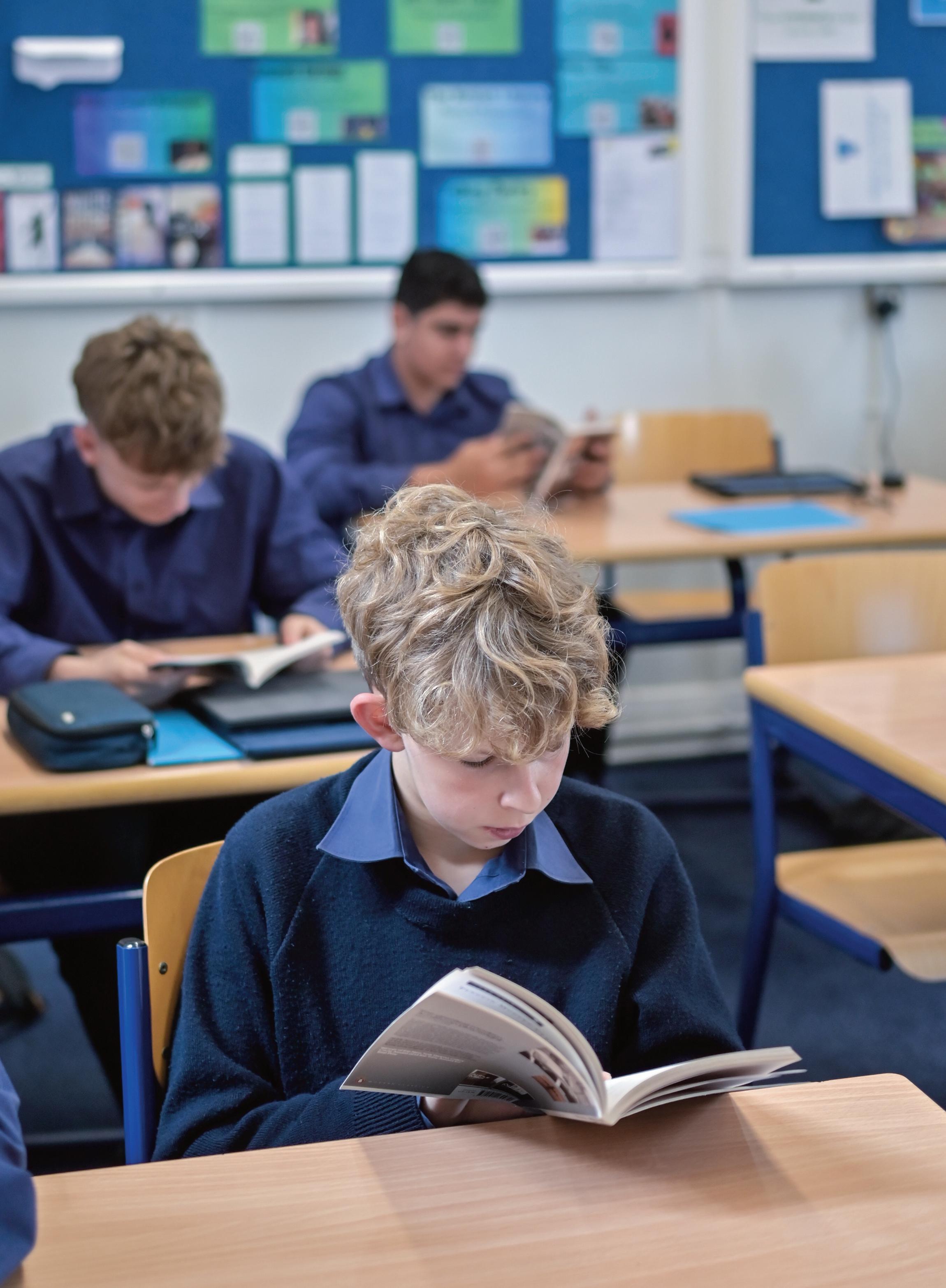
In summary, the Agora is more than just a reading clubit is a brain-gym for thinkers, and a place where our bright pupils are given the time, space, and challenge to develop their own intellectual interests.
Sixth Form Scholars and HAPs programme
The Sixth Form Scholars and HAPs programme is designed to extend students’ intellectual engagement and academic development to a pre-university level. Delivered collaboratively with Sherborne Girls, the programme offers a diverse range of enrichment opportunities, encouraging cross-school collaboration and fostering a culture of academic curiosity. Students particularly enjoy meeting intellectual sparring partners and supporting each other in their academic exploration.
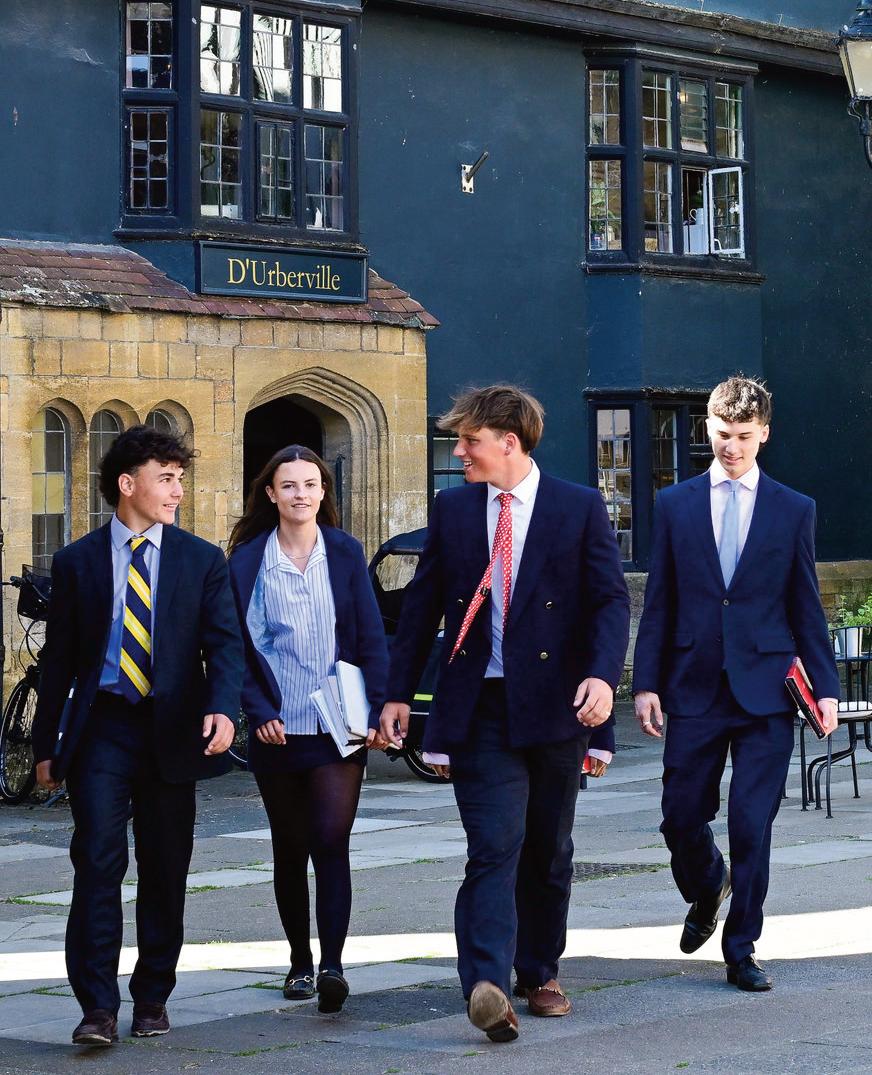
I have two very different boys and they are each getting the stretch and push they need. I feel that they are both going to hit their potential.
GOOD SCHOOLS GUIDE, 2024
Thinkers
Thinkers is a weekly seminar group session in which students work in faculty-based groups aligned with their intended university subject. This programme provides a platform for them to share and develop their individual academic interests. The programme supports students’ progression from post-GCSE study to the demands of competitive university applications. Through a blend of collaborative and independent work, students undertake academic research, complete MOOCs, enter essay competitions, and conduct personal research projects which they present to their peers. Sessions are structured around a university-style model: students prepare material in advance, and sessions are used for discussion, debate, and academic development. The emphasis is on fostering critical thinking, intellectual autonomy, and articulate communication.
A highlight of the Lower Sixth year is the Oxbridge Presentation Evening, held in May. Faculty groups
select a challenging academic question and explore it from multiple disciplinary perspectives. Each student presents a unique angle of the research to a formal panel, typically composed of Heads of Sixth Form. These presentations are expected to demonstrate scholarly rigour, analytical depth, and confident use of academic language. Recent winning presentations have explored questions such as “Has the Cold War truly ended?”, “How will the universe end?”, and “To what extent does Shakespeare villainise witchcraft in his plays?”
In the Upper Sixth, Thinkers sessions focus on academic preparation for applications to highly selective universities. Students receive support with crafting compelling personal statements, preparing for admissions assessments, and developing interview techniques.
THINKERS ACTIVITIES
Joining the Sixth Form Thinkers group has been a significant part of my integration into the School community. Every Thursday, our History discussion group comprising pupils from Sherborne Girls, Sherborne Boys, and The Gryphon School comes together to explore intellectual topics. These sessions often begin with a shared area of interest and evolve into lively, hour-long debates that frequently continue over dinner. In my view, this depth of conversation is what makes Thinkers both enjoyable and valuable. Beyond debates, we regularly engage in challenging academic activities, such as completing past exam papers, Oxford application tests, and general knowledge quizzes. These tasks provide not only academic preparation, but also develop key skills like critical thinking, argumentation, and collaboration. What I value most about Thinkers is the opportunity to discuss topics which interest me. Each session expands our knowledge and our skills that are vital for higher education. As we prepare for our UCAS applications and consider competitive universities, these experiences have been instrumental in boosting my capability. The Thinkers group has truly enriched my school life and equipped me for the academic challenges that lie ahead.
CHARLES, LOWER SIXTH
OXBRIDGE PRESENTATION EVENING
The Oxbridge Presentation evening was the culmination of weeks of collaboration, research, and hard work by pupils from Sherborne Boys, Sherborne Girls and The Gryphon School. After being selected for the programme, pupils were grouped based on their future academic and career interests – such as medicine, law, chemistry or engineering. Over the course of two months, each group developed a research project on a topic relevant to their field. My group, the medicine group, explored how sugar affects athletic performance, combining scientific research with real-world data to support our findings. Other groups tackled equally thought-provoking topics, demonstrating the depth and diversity of talent across all schools. The presentation evening brought everyone together in front of peers and teachers, allowing us to showcase not just our results, but the journey behind them – from forming hypotheses to final conclusions. It was an inspiring event that highlighted the importance of collaboration and intellectual curiosity. The atmosphere was supportive and engaging, and it was clear that every student took pride in their contribution. The evening truly captured the spirit of the HAP programme: to challenge ourselves, think critically, and develop the skills we’ll need for success in our future academic paths.
NENAD, LOWER SIXTH
Turing
Turing Society is aimed at expanding horizons and developing academic curiosity and interest beyond A level subject areas. Named in honour of Alan Turing, and reflecting Sherborne’s historical connection to his legacy, the Society hosts a wide range of seminars and workshops delivered by invited speakers – often Old Shirburnians or members of the wider school or local community. This year’s highlights have included a seminar on semantic linguistics led by a PhD student, a talk on artificial intelligence and machine learning by an OS, a workshop on strength profiling by a local Headmistress, and an engaging Mastermind-style session hosted by a Mastermind Finalist. These Saturday morning sessions provide valuable space for exploratory academic engagement and intellectual challenge.
Each year, Turing Society pupils take part in an academic enrichment trip designed to complement the themes of the programme. In 2025, pupils visited Bletchley Park – an especially meaningful destination due to the School’s connection to Alan Turing. Highlights of the visit included a codebreaking workshop and an exhibition on the future of computing.
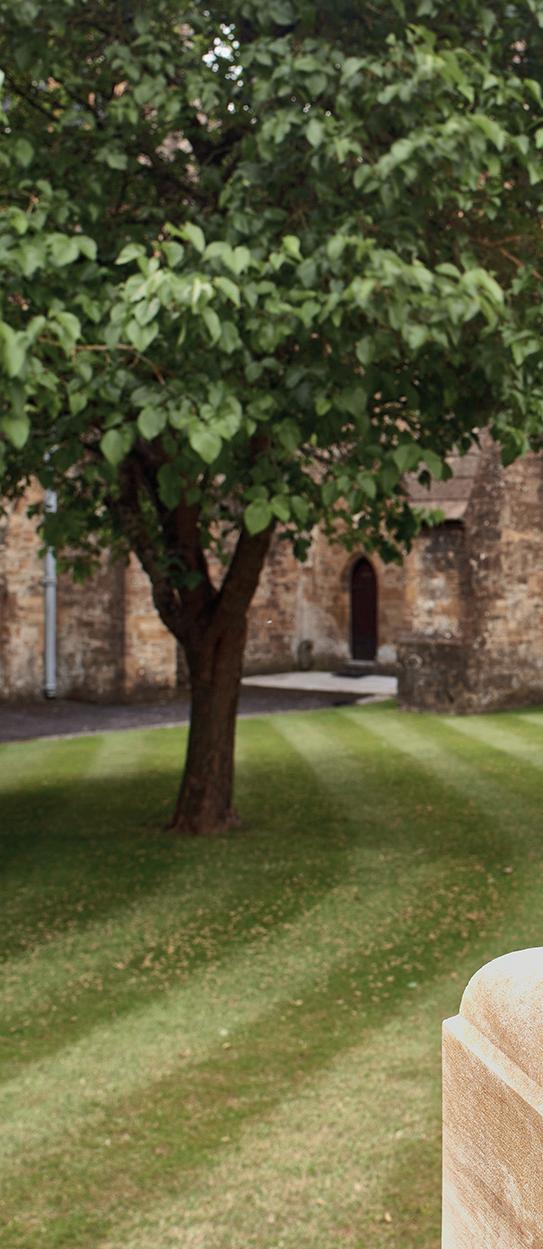

All Sixth Form HAP are encouraged to enter essay competitions including:
• The Minds Underground Philosophy Competition
• The John Locke Institute Global Essay Prize
Oxbridge
The Oxbridge Preparation Programme is available to all interested students from October of the Lower Sixth. Alongside their involvement in Thinkers and the Turing Society, Oxbridge applicants are assigned a personal academic mentor with whom they meet weekly. These sessions are tutorial in style, designed to simulate the Oxbridge learning model and to deepen the pupils’ capacity for academic discussion, critique, and reflection.
Many departments also run subject-specific extension seminars, introducing pupils to university-level problem solving and preparing them for the specific demands of admissions tests. The Oxbridge programme is coordinated by the Head of Specialist Higher Education, who meets regularly with each pupil to review their progress and offer bespoke guidance. There is a good support mechanism for interview preparation, including a joint schools practice interview evening where two teachers from a participating school give pupils the experience of what an Oxbridge interview will be like. A pleasing number of pupils have gained Oxbridge places recently, including 12 Sherborne Boys and Sherborne Girls in 2024.
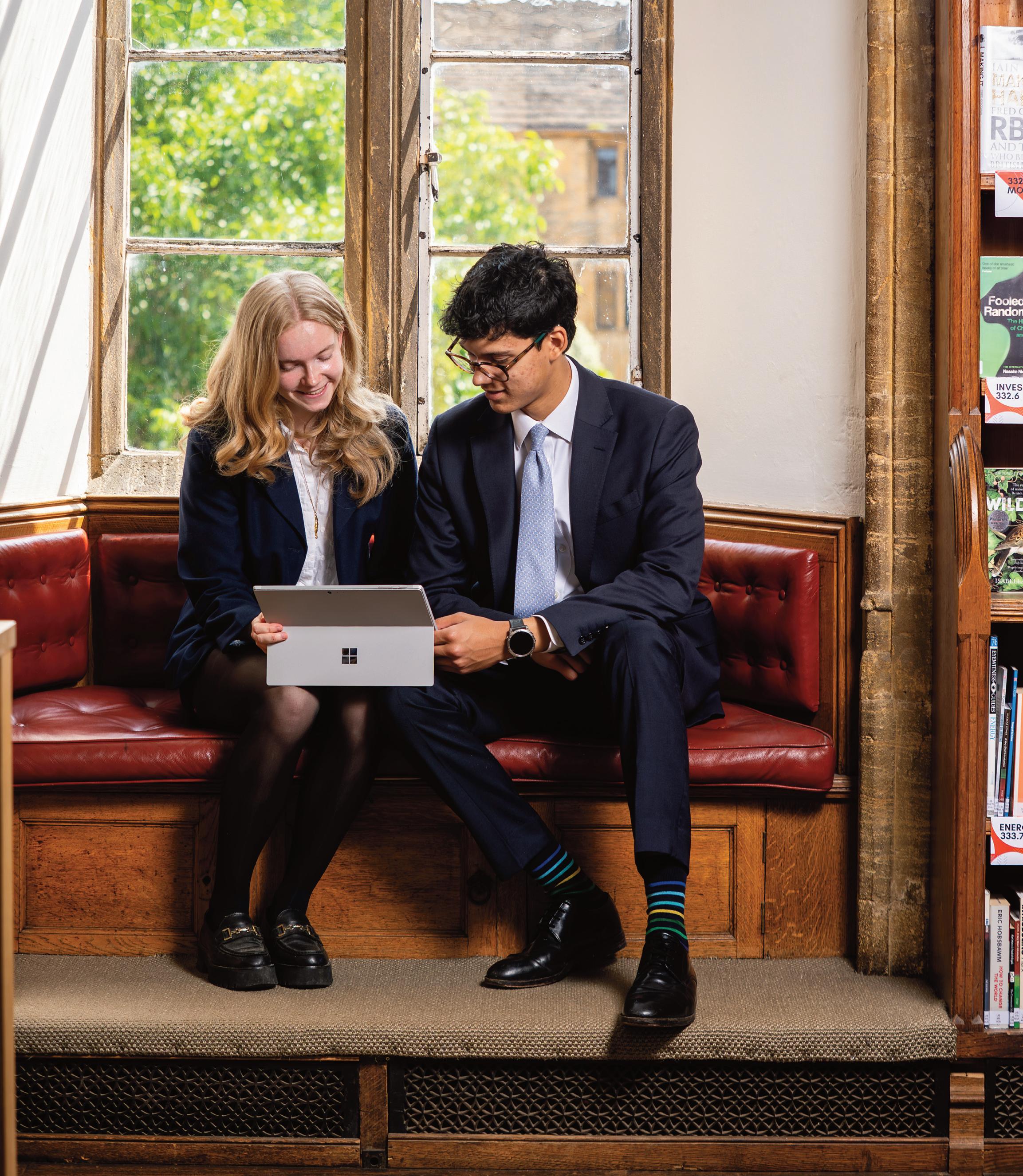
Scholarships and Exhibitions
Sherborne Boys invites talented and enthusiastic boys entering our Third Form or Sixth Form to apply for various scholarships and exhibitions that we offer. These awards range from academic and creative to musical and sporting. Please contact the Admissions Department for further information about the individual awards and their programmes on 01935 810403 or admissions@sherborneboys.group
Sherborne Boys
Abbey Road
+44(0)1935 810403
admissions@sherborneboys.group
sherborneboys.group
